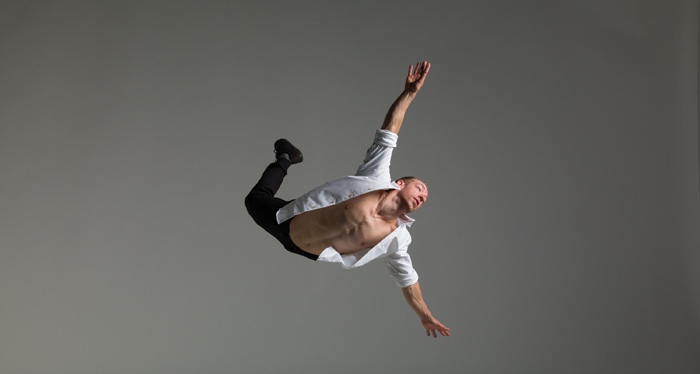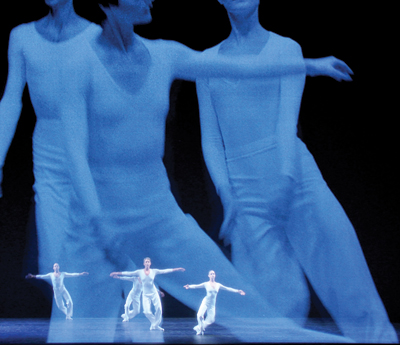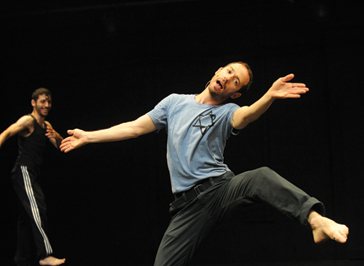
The 84rh annual American Dance Festival (ADF), the oldest and largest festival dedicated to modern dance in the country, began shortly before press time. It runs June 3-July 29, 2017, in Durham, NC. There will be 71 (besting last year’s by ten) performances by 30 companies and choreographers from around the world. In addition to Duke University and Durham Performing Arts Center, shows will take place in nine additional venues.
ADF is family friendly and an excellent opportunity to expose ourselves and our children to a variety of dance forms. Some dances may have nudity or mature content, but such dances are clearly noted on the ADF website. There are several Saturday 1-2p shows specifically meant for young children and accompanied by face painting and children’s activities.

The Festival makes significant effort to be affordable and accessible to all audiences. There are a number of free programs, and the ADF Go Program provides remarkably discounted $10 tickets for ages 18-30. A limited number of “Kids Night Out” tickets for those ages 6-17 are available for free with the purchase of a ticket to the same performance. Students and senior citizens also can get discounted tickets.
From an accessibility perspective, special needs are of course welcome not just in accommodation, but also in portrayal on the stage, such as with Bill T. Jones/Arnie Zane Company’s Analogy/Lance: Pretty aka the Escape Artist and Heidi Latsky Dance’s free On Display choreographed to be performed by a diversity of people and that “allows performers and the public alike to fully witness each other”. Accessibility to the content itself can also be an issue; contemporary dance can leave one with questions about dance, movement, art, and much more. Many post-performance discussions are included to allow audience members to ask the performers more about their work.
ADF brings with it not just cutting edge and world-renowned dance, but also top caliber dance instruction and camps. Each year, over 500 students and teachers from many countries come for programs like the Six Week School, Three Week School for Pre-Professional Dancers, and Dance Professionals Workshop.

As of press time, I had just seen Hillel Kogan’s We Love Arabs. Described as “the comical story of a Jewish choreographer and an Arab dancer who want to create a show that carries a message of coexistence and peace,” the almost-hour long dance presents a satirical stab at tolerance.
A nervous, loquacious, self-proclaimed liberal progressive Israeli choreographer desires to create a dance ostensibly about finding commonality in difference, and seeks an Arab to dance with him. His rush of words hardly masks his portrayed ignorance of “the other” when he first bemoans how to find an Arab dancer and then, when one appears, he mistakenly assumes that his partner is a Muslim. In fact, the understated Arab is Christian, but goes along with the torrent of direction and monologue as the dance unfolds. No space is given for feedback, and yet the partner gives, gives, and continues to give in following difficult directives.
The dance seemed to entertain the audience and reached out on many levels. I was happy to see that the humor was not lost on my eight-year old daughter who was often brought to laughter. Of course, she did not understand the context of the Israeli-Palestinian conflict (though I whispered to her that the dancer was trying to make people of all backgrounds comfortable), but saw the physical humor and mismatch of what the choreographer wanted to accomplish without providing any time or space for the other dancer to imbibe.
Beyond that, the dance illuminated the quandary of no doubt well-meaning people when they try to reach out to attempt to overcome prejudice, while having a privileged yet ignorant perch above the fray. What does it mean to be progressive and want to do good without really understanding the situation or the peoples that one presumes equality with? The buffoonery served both child-like perception and a deeper social angst.
I’m sorry to have missed what promises to have been fun and very energetic, Monica Bill Barnes & Company’s Museum Workout. I should have realized that all of the shows, restricted to very small audiences, would sell out quickly. It was a combined tour of the North Carolina Museum of Art along with participatory movement by the audience as the entourage moved amongst works of art.
I greatly regret that I could not attend the opening night gala performance of the African American Dance Ensemble, local to Durham, NC. Many who follow dance will know the Ensemble’s founder, Dr. Chuck Davis, belovedly known as “Baba Chuck.” A towering man in physical and spiritual stature, nobody could meet him without being changed for the positive. Unfortunately, he passed away on May 14, 2017 at the age of 80.
I look forward to sharing the season ahead with Saathee readers. Highlights for July include Pilobolus’ always exciting inventive dances; the beautiful and often classically-inspired programs of Paul Taylor Dance Company; Mark Morris Dance Group’s dances Gloria and Excersions, including live music of Vivaldi performed by the Durham Symphony and NC Master Chorale.
ADF tickets are on sale. Full details on tickets, as well as all things ADF, are available at americandancefestival.org .
Note: Photographs and American Dance Festival logo and schedule courtesy of American Dance Festival and used with permission (except photograph of Dr. Chuck Davis, from africanamericandanceensemble.org). Top photograph of Lucinda Childs (Footprints), taken by Sally Cohn. Hillel Kogan photograph by Gadi Dagon. Cherdonna photograph by Lou Daprile



